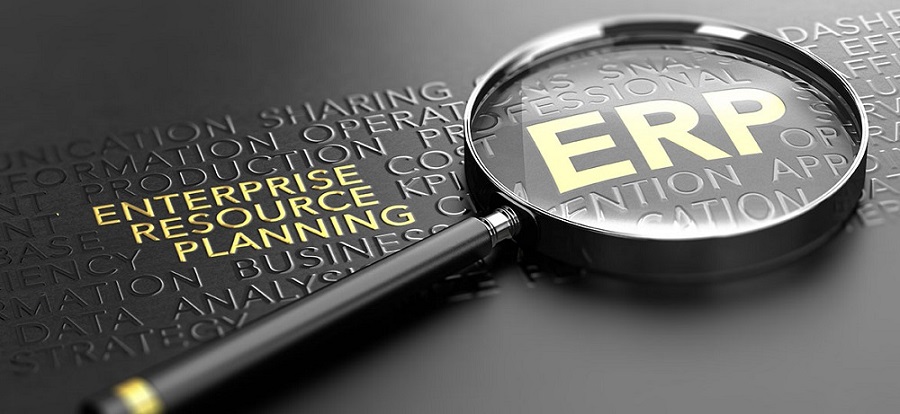Related Articles
Why You Need To Connect Financial Module with The Production Module in an ERP System
Connect financial with production module. If your business is involved in the production of goods, this aspect is obviously the most prominent one out of the others. All factors and considerations are tied with the improvement and maintenance of continuous production. Human resources is engaged with ensuring that the production line is staffed with consistent and healthy workers, management is engaged with ensuring that the right planning drives the very process of production, the legal department is engaged with ensuring that the directives, regulations, and principles are followed through the course of production, and finance is engaged with making sure that the many parts and pieces that contribute to the ‘engine’ that is produced is kept afloat through the maximization of investment and cost reduction.

The ever-increasing focus towards industry around the world means that the field of operations has become a dominant force in planning and production management. Even if ‘production’ means the provision of services, the strategies and techniques for optimization remain unchanged. Issues revolving around what and how much is being produced and how it is performing are common issues that are to be wrestled with. Production operations is given equal emphasis with marketing and finance in some of the best-performing companies.
INTEGRATION OF FINANCIAL MODULES WITH PRODUCTION MODULES
‘Modules’ in the strictest sense would mean ERP software modules that allow a company to digitize its overall running operations and effectively manage the many aspects of a business operation. ERP software such as Odoo come with a variety of modules, including official modules that let you bring about a paradigm shift in how efficient the specific processes can get. These modules are designed for very easy integration with each other to contribute to an overall well-performing, efficient operation. However, the focus of this article is towards the organic incentives for closely integrating your company’s production and financial operations; an in-depth look into the results.
- Marketing plans: The responsibility of marketing is to present the customer base a vision, a refined idea of what it a product can be if the customer were to purchase it. To this end, the marketing team will rely on the current state of the company’s finances and a realistic idea of the production capabilities. This is also relevant in design as the design departments of many companies fall under the control of the marketing management. For the design team to come up with a design that is alluring and capturing while also being cost-effective, they must have easy access to financial and production data. Operation is focused on production capabilities and capacities, with combined input from marketing and design being able to provide a company with the best possible chances and expectations for success in selling a product.
- The strategic functions of operations: The company’s operations staff always concern themselves with planning and managing the production capacity of the company, along with production equipment and facilities. These functions are all the more important for a firm that manufactures its own products, with the responsibilities only growing as the company grows. To this end, the company’s operations staff can improve the quality and efficiency of their work if they have production capability projections reinforced by accurate and direct financial data. The micro-costs involved with production such as the cost of production equipment and the yearly expected costs of maintenance of those equipment are the types of data the operations staff could greatly come in need of. From here, the staff can begin formulating an idea of the company’s future direction, achieve identification of customers, plan out ambitions for growth, profitability, and image. This is applicable for businesses of any size.
- Accounting and finance: Ideally, the financial department is staffed with people with a clearly realized aim towards the intricacies of financial record keeping, accountability, and decisions. These staff members provide both proactive and reactive support for the rest of the business organization, helping other divisions optimize existing strategies and identify new ways to cut costs and raise profits. The production staff’s involvement in setting up and maintaining equipment, managing the inventory and measuring performance fits integrally with finance and accounting’s focus on the bottom line. Accurate data from finance and integration with production modules also brings about the necessary intersection between strategy and fiscal policy, branching out into concerns with the costs associated with the staffing the production line. Many businesses often combine accounting and finance into one operation which is then integrated with productions and operations.
CONCLUSION
Eventually, all aspects of running a business intersect with one another since all of them focus on contributing to the company’s plans and profitability. As operations and by extension, production strategizes and closely oversees production output and capacities, it relies very heavily on financial data and decisions. A seamless and tight integration of finance with other departments if your business ensures that each and every transaction, each and every penny is properly accounted for and no opportunity for maximizing the growth of your company is missed. Data clutter that can result from redundancies in having the same type of data, or even the exact same data across multiple factors of production is reduced by integration facilitated by an ERP system.
Whether you are running a small business or a large business, it matters little. These principles are basic for all types of businesses and any business from any industry can benefit from the close integration of the financial and production modules. The bottom line is that if you have an idea about the intricacies and the possibilities, you can always figure out ways to grow.
Syncoria is a digital transformation firm based in Canada and is an official Odoo Ready partner.




